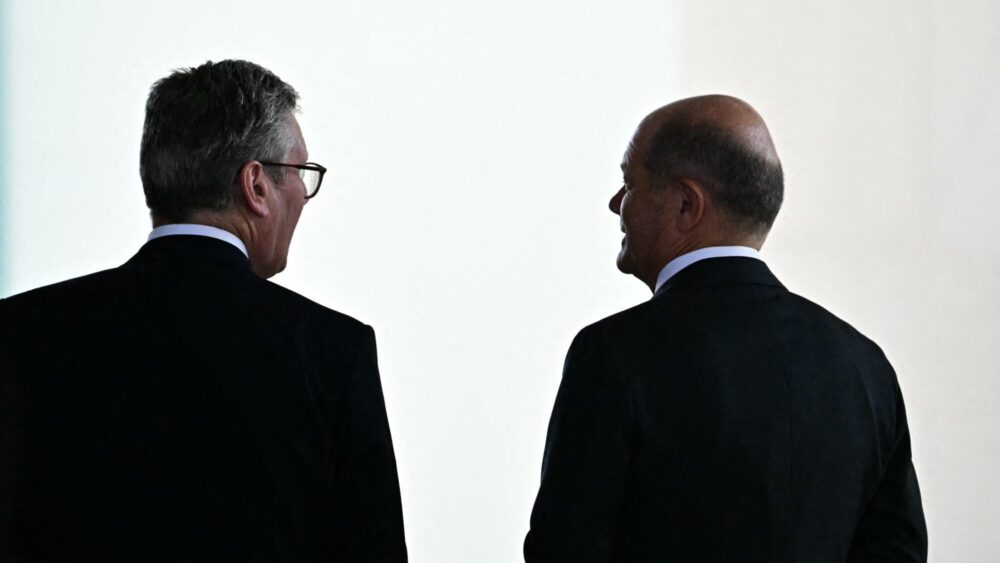
German Chancellor Olaf Scholz (R) and Britain’s Prime Minister Sir Keir Starmer
Tobias SCHWARZ / AFP
Sir Keir Starmer, Britain’s new and unpopular Labour prime minister, travelled to Germany yesterday to tell Chancellor Olaf Scholz that he wants to “turn a corner” on Brexit.
As with his previous calls to “reset” relations with the European Union, his speech alongside Scholz hinted at even weaker borders and more rule-taking from Brussels under a Starmer government.
Never mind the fact that more Britons voted to leave the EU in 2016 than have voted for any other electoral option in the nation’s history—and that the vote was deeply tied to the all-important issue of immigration. Nor that the electorate doubled down on this in both the 2019 European elections and general election, during which the then-prime minister Boris Johnson promised to “get Brexit done.” Nor, indeed, that the Tory failure to properly see Brexit through played a large part in the party being thrown out of office in July.
Even as Starmer tries to deny it—just as senior Labour figures spent months talking down the idea they would implement (now-incoming) major tax rises—Brussels officials have been quite clear that the EU will only agree to Starmer’s “reset” plans if he agrees to ease immigration controls for young Europeans to come to the UK.
Adding insult to injury, Starmer even used a catchphrase repeated ad nauseam during the 2016 referendum campaign when describing his intention to effectively undo parts of Brexit as a “once-in-a-generation opportunity.” Of course, he never did believe that phrase when it was used in 2016, since he later went on to campaign for a second referendum on EU membership.
On the morning of Starmer’s talks with Scholz, an SPD spokesman pointed to the “constant push by the German government to bring the UK closer to Europe and to facilitate cooperation between Great Britain and the EU in as many fields as possible, ranging from trade to student mobility rights to defence.” Most notably, he added that regarding all this, the two leaders are “more or less on the same page.”
In order to keep up the momentum, Starmer is today, on August 29th, in France to discuss closer UK-EU relations—“closer,” said the PM, “than ever before”—with President Emmanuel Macron. The BBC reports that some form of treaty with EU leaders will be signed within the next six months.
But “who,” asked journalist Mick Hume in the Mail, “voted for that?”
Certainly not the 17.4 million citizens who put their X in the box marked “Leave” in the 2016 referendum, which was billed as a “once-in-a-generation” chance to “take back control.” That’s getting on for twice as many as the 9.7 million who voted Labour in July. Or, to put it another way, just 20 per cent of the electorate.
Journalist Patrick O’Flynn added that to “kibosh” developing plans “would require pro-Brexit political parties also to get their acts together: a strong Tory revival under a charismatic new leader; some kind of sensible accommodation with Nigel Farage’s Reform party.”
And we are, alas, a very long way away from that.
